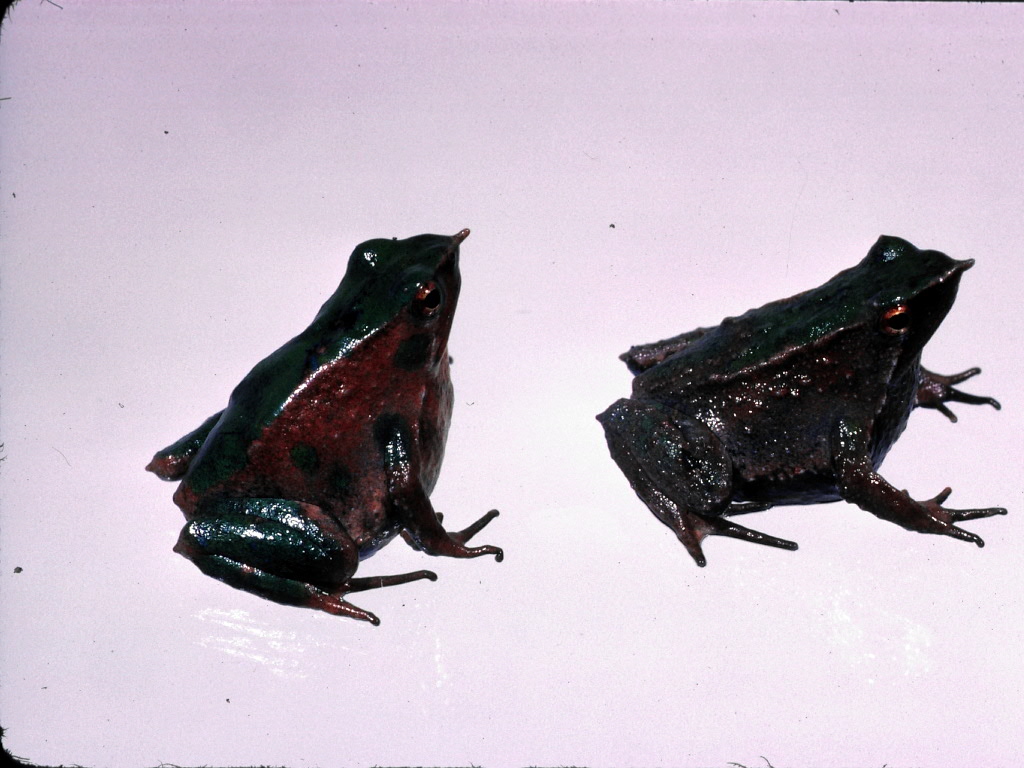Parental Care In Darwin's Frog (Rhinoderma darwinii)
Biology 342 Fall 07
Kristy Gonyer
Adaptive Value
Benefits and Costs of Parental Care
Benefits and Costs for R. darwinii

Rhinoderma darwinii
Used with permission by Micro Sole
Benefits and Costs of Parental Care
The main benefits of parental care are prevention of predation, dehydration and infection from fungi and bacteria (Wickramasinghe et al., 2004). Males and females experience different costs when providing parental care, but the parent that provides care usually can do so at the lower cost (Beck, 1998). The primary cost to males is usually the decreased opportunity to mate (Trivers, 1972). However, in many species of frogs even when the opportunity to mate is completely lost, a male's fitness is greater when he provides full parental care (Townsend, 1986). Males have the added advantage of sometimes being able to care for more than one brood at a time (Trivers, 1972).
Benefits and Costs for R. darwinii
R. darwinii males have many advantages when providing parental care. Vocal sac brooding not only prevents predation, dehydration, and infection, but also provides nutrition to the larva, increasing survival are larva. R. darwinii larva are unable to survive when raised outside of the vocal sac (Goicoechea et al., 1986). Brooding males are able to forage as often as non-brooding males, and they are not restricted in their movement compared to other individuals. Finally, many males raise more than one brood at a time, increasing their fitness. It is also believed that females are able to ovulate several times during a season increasing female fitness as well (Crump, 2002).